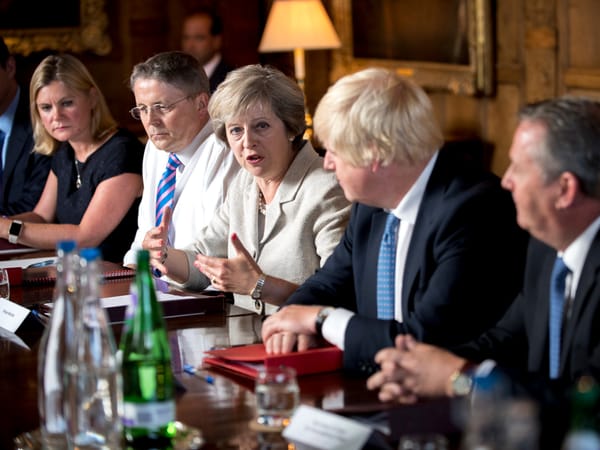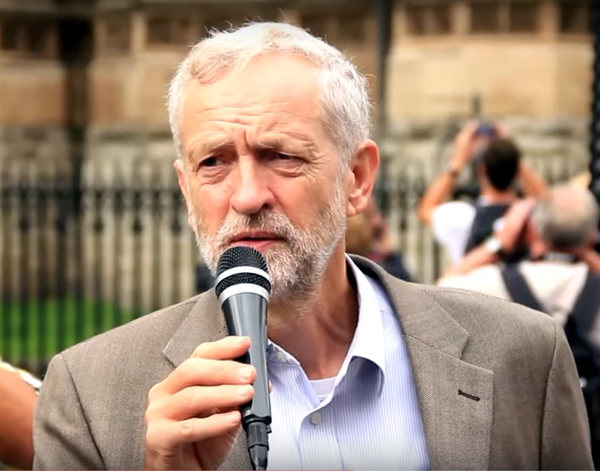It’s Been a Long Summer in British Politics
Brexit will be a defining moment in British Politics and what has happened over the last few months could define the outcome of the UK’s negotiations with the EU.

It’s been a crazy summer in the world of politics with both major political parties in major turmoil. The Conservative party and the Labour party have been in open warfare over Brexit with each other and within their own camps.
The start of the summer started well for Theresa May, she suffered no major defeats in the House of Commons over her Brexit plans and was able to get her Chequers plan agreed by her Cabinet with little blowback. The Chequers plan was designed to be a compromise between remain and leave supporters with regulatory agreement over goods allowing frictionless trade whilst solving the Irish border problem, however; it has failed to appeal to either side of the Brexit debate. Whilst Cabinet members Johnson and David Davis have resigned over the Chequers plan, this has so far had few consequences on Theresa May’s Brexit plans and it is still the agreed position of the Cabinet with both remainers and Brexiteers in her Cabinet publicly backing the plan.
This was as good as it would get for Theresa May. She’s been facing open revolt over her plans from the European Research Group, a group of Eurosceptic Conservative MPs, who believe the deal would leave the UK in the worst possible position on accepting EU rules on goods but unable to influence these rules after leaving the EU. This group would prefer to see the UK leave with a simple free trade agreement where both countries agree to reduce tariffs over goods, but this could reduce overall trade with the EU compared to the current settlement. However, this would make it easier to strike new trade deals with other countries such as the USA, which would be much more difficult under the Chequers plan. The European Research Group (ERG) is about 40-60 MPs strong and would in all likelihood be able to scupper any deal that Theresa May brings back to Parliament that even vaguely resembles Chequers if they were to vote against it. There are only two ways Theresa May could get her plan through Parliament; one would be to appeal to a select number of Labour MPs to vote for her plan in order to avoid leaving the EU without a deal. The other way to garner support is to turn any vote on May’s Brexit plans into a vote of no confidence in her government. It would then be a choice between triggering a general election where Corbyn’s Labour could win power or vote for the deal.
Theresa May’s plans were also dealt a heavy blow by the EU. They have come out to say that they believe her plan to be unworkable and that it would undermine the integrity of the EU single market. This was a much stronger rebuke to her plans than she had anticipated and provoked a pointedly angry response from the PM. The EU’s plans for the Irish backstop have proved unpalatable to the UK government as they would see Northern Ireland enter into a different arrangement so that there would be no need for border checks on the island of Ireland. This would result in checks being made between Northern Ireland and the rest of the UK if there were no deal and according to some would be the economic annexation of Northern Ireland from the rest of the UK; this would most significantly include unionist DUP MPs who May relies on in order to gain a majority in Parliament following her botched general election of 2017.
The Labour party’s position on Brexit is as divided as the Conservatives. In this way Labour are fortunate they do not have to deliver Brexit as these divisions would become all the more apparent under the kind of scrutiny any government would face over Brexit. This has been exemplified by the recent row over a 2nd referendum. At the Labour conference there has been agreement amongst the leadership that if the membership vote to back a 2nd referendum then this will be adopted by the party. This scenario appears likely to happen. However, the nature of this 2nd referendum was disputed with Labour’s shadow Brexit Secretary stating that an option to remain could be one of the options on the ballot paper but Labour’s Shadow Chancellor categorically ruling this out. Labour have spelled out six tests which any Brexit plan must meet in order for them to vote for it; one of these tests state that the UK should have the same benefits after Brexit as we do before it. This is clearly unachievable under any Brexit deal. Beyond these six tests Labour has failed to give much more detail as to their Brexit plans and Labour’s solution to Brexit thus far has been to be as ambiguous as possible on their Brexit policy. With Brexit nearing and the Labour conference under way this position will become harder and harder to maintain.
Where we will be come March 2019 when we leave the EU is anyone’s guess. If Theresa May is able to convince the EU, remainers and Brexiteers in Parliament to agree to her deal then this would be bordering on miraculous. Both Labour and the Conservatives have been severely challenged by Brexit and how they manage the next few months could shape the future of the UK for a generation.







